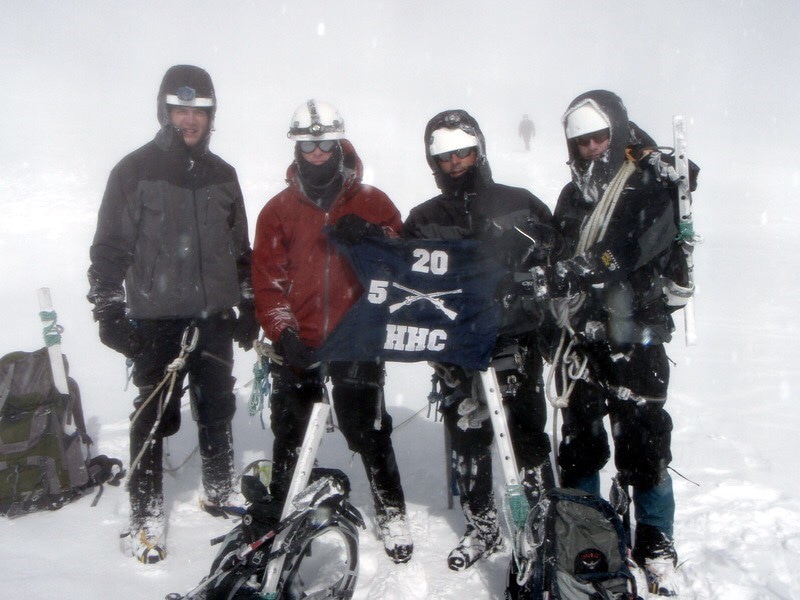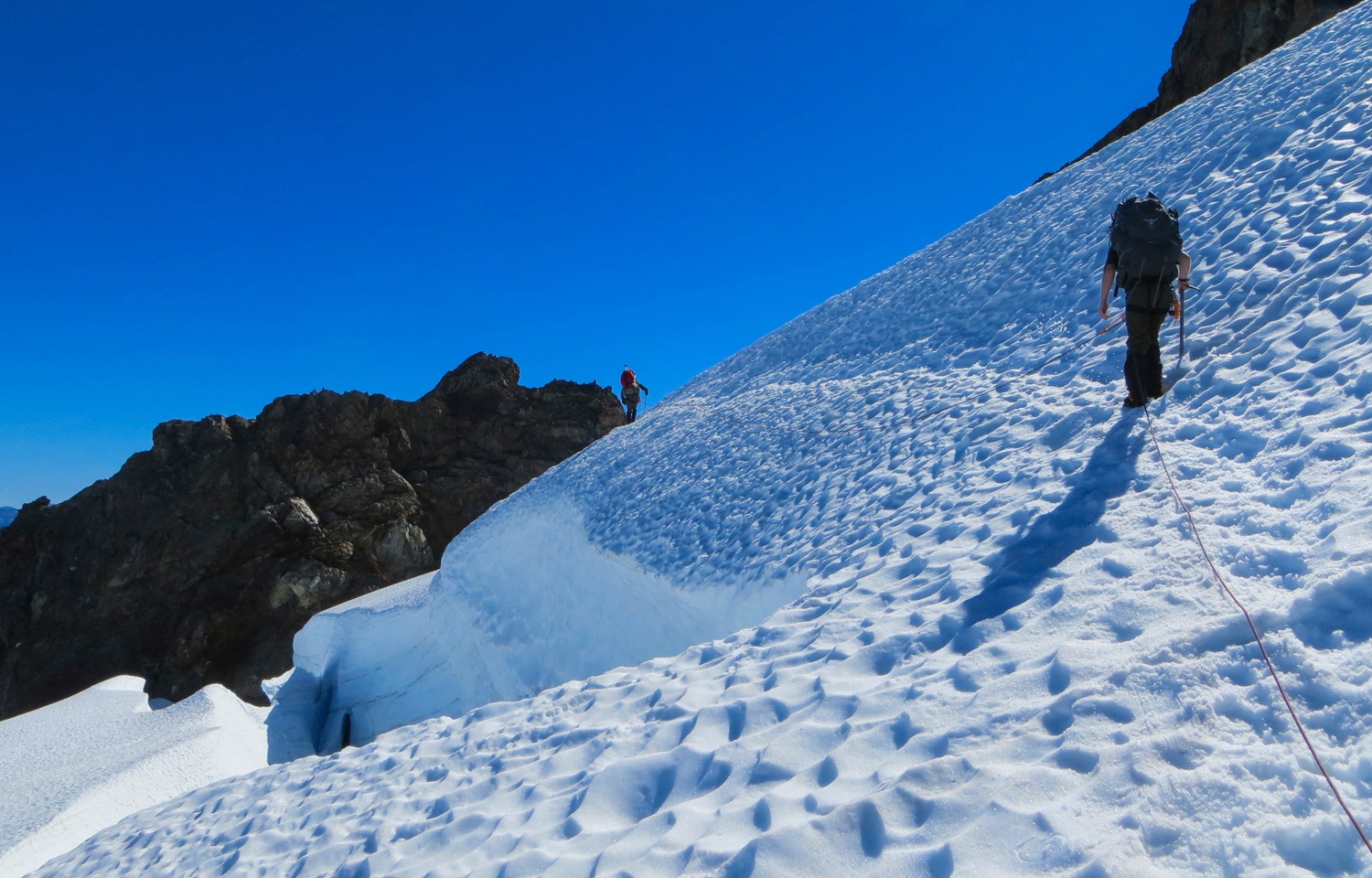As we give thanks for their service on Veteran’s Day, REI has asked one vet and a nationally renowned medical researcher to share their views on the healing power of the outdoors. It’s a reminder of how opting outside can help each of us rejuvenate and reconnect.
Joshua: I saved my life in the mountains. It wasn’t a deliberate act, like reaching for a life preserver or entering into rehab. It was an accidental, slow, stumbling success that brought me back from the brink, often despite my best efforts to sabotage it through hurting myself and those closest to me along the way. I spent three years in combat in Iraq. The kind of kill-or-be-killed, mangled-people combat that can wreck your mind. It did mine.

I began climbing in 2008, shortly after I was stationed south of Seattle. While staring at Mount Rainier that rainy spring, I decided that I needed to stand on top of it. I formed a motley crew of soldiers, we taught ourselves to climb, and after one near-disaster on the Disappointment Cleaver, we stood on top. Little did I know that this was a life-changing moment for me. Over the next few years I began to get out more and more, finding the power of nature was at times better for my soul than any band-aid treatment the Army was throwing at me. Once out of the service, I discovered that the outdoors greatly enhanced my mental and physical healthcare. I’d stumbled onto something.

I’ve often thought that if our wildest places have kept me alive, there might be something here that can save the lives of others. My story is not unique. I’ve met countless veterans who, whether through chance or purpose, have found their way in the wilderness. After years of seeing this work, I’m convinced that there is more to this than just allegory and romantic philosophy. If we can crack the code on our relationship with nature, we can apply that knowledge to work within nature making healthier, more resilient people.
The Healing Power of Nature
Howie: I’m a doctor, not a soldier. I can’t possibly understand what Joshua and his fellow service members endured in combat. But as a doctor, I know that the key to successful diagnosis and treatment is listening to patients. There is much truth in Joshua’s deeply compelling account.
As an epidemiologist, I know that we need solid data to guide how we care for people. We have plenty of data to support Joshua’s account. Over the last couple of decades, researchers have looked carefully at the effects of nature contact on people’s health and well-being. The results are extraordinary.
Nature contact is linked to reduced stress, better mental functioning, smoother recovery from heart attacks and surgery, stronger connections among people, more physical activity, less obesity, healthier pregnancy outcomes, improved immune function—the list goes on. We can only dream of a medication that yields this many health benefits, as safely and as inexpensively.
We don’t have all the answers. What is a “dose” of nature? What is the best way to get this dose? How long do the benefits last? Who is most likely to benefit? As time goes on, we’ll learn more.
But for now, we certainly know enough to act. Hiking, climbing and camping in the great outdoors, spending time in urban parks and greenspace, gardening, even keeping houseplants—all these can justifiably be considered public health interventions. They can restore the body, mind and soul. And it may be no overstatement to say, as Josh did, that they can save lives.
Dr. Howard Frumkin is a professor of Environmental and Occupational Health Sciences at the University of Washington School of Public Health. He has worked in academia and public service. At the U.S. Centers for Disease Control and Prevention from 2005 to 2010, he directed the National Center for Environmental Health and Agency for Toxic Substances and Disease Registry, where he established programs in Climate Change and in Healthy Community Design. He has served and continues to serve on numerous boards, and has authored or co-authored over 200 scientific articles, chapters and books.
Related Story
